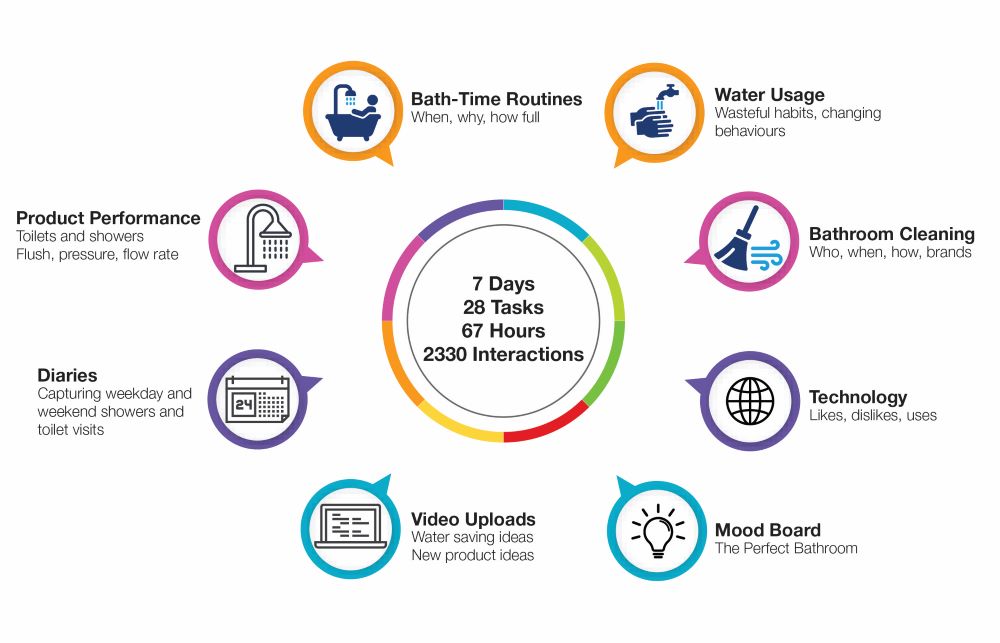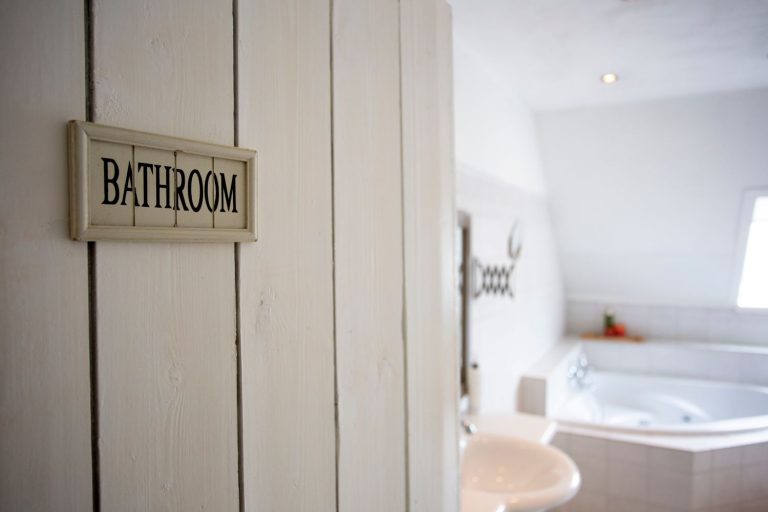The Bathroom Manufacturers Association (BMA) has released its latest research findings, revealing previously unseen insights into the intimate area of UK adults’ bathroom habits.
Key findings from the study include:
Toilet Habits:
- Men use toilet paper less frequently than women. On average, women use 6.1 sheets of toilet paper per use. However, when men do use toilet paper, they use more per visit, averaging 7.5 sheets.
- 3 out of every 50 of us don’t wash our hands after a toilet visit at home.
- 1 in 25 of our toilet visits need a little extra help to clear the pan, with men particularly fond of the double flush.
Bath Utilisation:
- Despite the prevalence of baths in 87% of households, nearly a third remain unused.
- Reading a book and catching up with social media are our two favourite bathtime activities.
Water Wastage:
- 3 out of 5 participants admitted to leaving the tap running while washing hands, with 42% doing so while brushing their teeth.
- More than 2 in 5 leave the tap running while brushing their teeth.
Showering Preferences:
- Women like their showers hot. While most people favour maintaining a consistent shower temperature, the study suggests that 19 out of 50 women opt to increase the temperature during their showers.
Technology in the Bathroom:
- People are turning their back on tech in the bathroom. Despite the digitalisation of modern life, only 13% would desire more technology in their bathrooms. Instead, the majority sought a tranquil sanctuary without external distractions, focusing on water-saving innovations rather than intrusive gadgets.
The study, supported by Professor Ian Walker of the School of Psychology at Swansea University, embarked on a journey to unravel the mysteries behind the bathroom door. Focusing on daily routines and behaviours, the research aimed to uncover why we engage in certain practices and the underlying factors that drive our actions, particularly concerning water-saving habits.
Many bathroom habits are deeply rooted in childhood, forming subconscious routines that persist into adulthood. However, installing a new bathroom presents a unique opportunity for behaviour change, disrupting established patterns and paving the way for adopting more sustainable practices.
Reflecting on wasteful bathroom habits, participants cited deep-seated routines and prioritisation of personal well-being as primary drivers, indicating a reluctance to modify behaviours despite acknowledging their environmental impact.
As the study drew to a close, participants were tasked with envisioning “the perfect bathroom,” revealing emerging design trends such as black brassware, botanical accents, and thoughtful lighting arrangements.
Commenting on the findings, the BMA’s research manager, Jane Blakeborough, remarked, “Our research offers insights into the complexities of human behaviour within the private realm of the bathroom. By understanding the motivations behind our habits, we can create more sustainable and satisfying spaces that harmonise with our lifestyle needs.”
The comprehensive report, enriched by Professor Walker’s expertise and real-world observations, promises to inform future strategies for promoting water conservation and enhancing bathroom design.
An overview of the research findings is available here.



